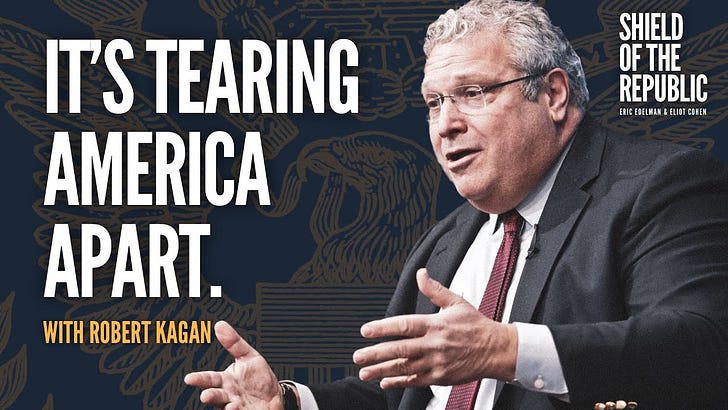With Eliot on the road Eric welcomes Bulwark Editor at Large Bill Kristol to the show. They discuss the prospects for a Supplemental Appropriation for Ukraine aid in the Congress, the state of public opinion on the war in Ukraine, the impact of the Republican Presidential debate on support for Ukraine, the effort that Bill and Bulwark publisher Sarah Longwell have launched to highlight Republicans for Ukraine, the key role of Senator McConnell and other supporters of traditional conservative internationalism in this effort, the seeming cluelessness of some folks in the Biden Administration about the information dimension of the War in Ukraine and the damaging role that "armchair generals" have played in carping about Ukrainian performance in the current counter-offensive.
https://www.wsj.com/articles/let-ukraine-direct-its-own-counteroffensive-russia-war-weapons-military-kyiv-bd360796
https://plus.thebulwark.com/p/ukraine-doesnt-need-armchair-generals
https://gopforukraine.com/
Shield of the Republic is a Bulwark podcast co-sponsored by the Miller Center of Public Affairs at the University of Virginia. Email us with your feedback at shieldoftherepublic@gmail.com
Share this post

Republicans for Ukraine
www.thebulwark.com
Republicans for Ukraine
Aug 31, 2023
Shield of the Republic
Audio
Shield of the Republic is a Bulwark podcast co-sponsored by the Miller Center of Public Affairs at the University of Virginia. We probe beyond the hive mind of Washington conventional wisdom on national security and foreign affairs.
Shield of the Republic is a Bulwark podcast co-sponsored by the Miller Center of Public Affairs at the University of Virginia. We probe beyond the hive mind of Washington conventional wisdom on national security and foreign affairs.Listen on
Substack App
Apple Podcasts
Spotify
Pocket Casts
RSS Feed
Recent Episodes












Republicans for Ukraine